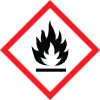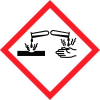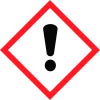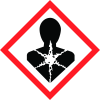B65HX ACROLON 218 HS ACRYLIC POLYURETHANE
THE SHERWIN-WILLIAMS COMPANY
Revision date : 2022-02-06




Note: Ingredients listed on restricted chemical lists
EC/CAS
64742-82-1
Name of the chemical
Naphtha (petroleum), hydrodesulfurized heavy
Concentration
≤0.3
General Information
Revision date
2022-02-06
Product name
B65HX ACROLON 218 HS ACRYLIC POLYURETHANE
1.2.1 Relevant identified uses
Paint or paint related material
Manufacturer Name
THE SHERWIN-WILLIAMS COMPANY
Emergency telephone
(216) 566-2917, (216) 566-2902, (800) 424-9300
Icons in SDS
Company Information
Company name
THE SHERWIN-WILLIAMS COMPANY
GHS Information
Signal word
Danger
Section 2
SECTION 2: Hazards identification
29 CFR 1910.1200) OSHA/HCS status : This material is considered hazardous by the OSHA Hazard Communication Standard (29 CFR 1910.1200).
2.1 Classification of the substance or mixture
FLAMMABLE LIQUIDS - Category 2 SKIN CORROSION/IRRITATION - Category 2 SERIOUS EYE DAMAGE/ EYE IRRITATION - Category 2A SKIN SENSITIZATION - Category 1 CARCINOGENICITY - Category 1A TOXIC TO REPRODUCTION - Category 2 SPECIFIC TARGET ORGAN TOXICITY (SINGLE EXPOSURE) (Narcotic effects) - Category 3 SPECIFIC TARGET ORGAN TOXICITY (REPEATED EXPOSURE) - Category 1
Ingredient(s) with unknown acute toxicity
28.4% (oral), 28.4% (dermal), 27.2% (inhalation)
Signal word
Danger
Hazard statements
Highly flammable liquid and vapor. Causes skin irritation. May cause an allergic skin reaction. Causes serious eye irritation. May cause drowsiness or dizziness. May cause cancer. Suspected of damaging fertility or the unborn child. Causes damage to organs through prolonged or repeated exposure.
Precautionary statements
General : Read label before use. Keep out of reach of children. If medical advice is needed, have product container or label at hand.
Prevention
Obtain special instructions before use. Do not handle until all safety precautions have been read and understood. Wear protective gloves, protective clothing and eye or face protection. Keep away from heat, hot surfaces, sparks, open flames and other ignition sources. No smoking. Use explosion-proof electrical, ventilating or lighting equipment. Use non-sparking tools. Take action to prevent static discharges. Use only outdoors or in a well-ventilated area. Do not breathe vapor. Do not eat, drink or smoke when using this product. Wash thoroughly after handling. Contaminated work clothing must not be allowed out of the workplace.
Response
IF exposed or concerned Get medical advice or attention. IF INHALED Remove person to fresh air and keep comfortable for breathing. Call a POISON CENTER or doctor if you feel unwell. IF ON SKIN (or hair): Take off immediately all contaminated clothing. Rinse skin with water. Wash contaminated clothing before reuse. IF ON SKIN: Wash with plenty of water. If skin irritation or rash occurs: Get medical advice or attention. IF IN EYES: Rinse cautiously with water for several minutes. Remove contact lenses, if present and easy to do. Continue rinsing. If eye irritation persists: Get medical advice or attention.
Storage
Store locked up. Store in a well-ventilated place. Keep container tightly closed. Keep cool.
Disposal
Dispose of contents and container in accordance with all local, regional, national and international regulations.
Supplemental label elements
DELAYED EFFECTS FROM LONG TERM OVEREXPOSURE. Contains solvents which elements can cause permanent brain and nervous system damage. Intentional misuse by deliberately concentrating and inhaling the contents can be harmful or fatal. WARNING: This product contains chemicals known to the State of California to cause cancer and birth defects or other reproductive harm. This product must be mixed with other components before use. Before opening the packages, READ AND FOLLOW WARNING LABELS ON ALL COMPONENTS. Adequate ventilation required when sanding or abrading the dried film. If Adequate ventilation cannot be provided wear an approved particulate respirator (NIOSH approved). Follow respirator manufacturer's directions for respirator use. DELAYED EFFECTS FROM LONG TERM OVEREXPOSURE. Abrading or sanding of the dry film may release Crystalline Silica which has been shown to cause lung damage and cancer under long term exposure. Please refer to the SDS for additional information. Keep out of reach of children. Do not transfer contents to other containers for storage.
2.3 Other hazards
None known.

